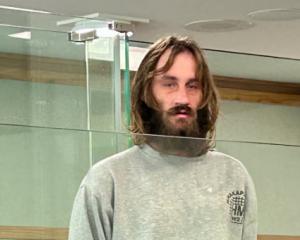A major conference bringing together the world's biggest players in genetic modification opened to the angry chants of protesters yesterday.
The week-long international agricultural biotechnology conference is being described by those on both sides of the genetic modification debate as a significant event for GM - but for opposing reasons.
Organisers hoped the Rotorua conference would foster collaboration and provide more answers on how GM could assist in feeding a world population expected to double by 2050.
But GM opponents see it as an opportunity for corporations to push profit-driven agendas using what they claim to be unsafe and outdated technology.
Speakers include Ceres chief scientific officer Dr Richard Flavell, who was among the first in the world to successfully clone a plant gene, Professor Robert Reiter of global biotech giant Monsanto, and United States international biotech trade envoy Jack Bobo.
A group of protesters, holding placards reading "stop poisoning our children" and "you are not welcome", chanted from the car park as delegates arrived at the Rotorua Energy Event Centre.
A strong security presence had been arranged for the expected protest.
The chief executive of event hosts NZBIO, Suzanne Bertrand, said GM was one "tool" to advance research.
"New Zealand is feeding about 19 million people out of its agriculture and it is using the latest technology ... it's been using biotechnology for the last 20 years - without it, we would be nowhere," she said. "Some people say we shouldn't even touch GE, but as a tool for research it's very interesting."
Keynote speaker and leading agricultural scientist Dr Clive James said feeding the world remained "one of the most formidable jobs we have to do".
"I think that if you look at the current technology, conventional technology alone will not allow you to feed the nine billion in 2015, so the new technology will play a very essential role."
Jerome Konescni, who chairs the body that organised the international conference, argued that could not be done using organic food.
"The question I would ask proponents of organics is: if we have to double the world's food supply by 2050, how are you going to do with it technology that ... reduces production rather than increases it?"
But Greens MP Steffan Browning, who hosted an afternoon seminar against GE in a meeting room a few hundred metres away, called the view "rubbish".
"If our population goes berserk, no system is going to feed the world. But organic and traditional means are going to feed the world better until we hit that point ... GE is not going to do it."
Dr Elvira Dommisse, a former Crop and Food scientist who worked on the first GE onion research, told the seminar she opted out of the industry after growing disillusioned with GE.
"I could see it wasn't about making good crops, it wasn't about making high-yielding crops, it was about making money from DNA you could claim as your own."
New Zealand's rules governing genetic modification are currently being studied by the Ministry for the Environment.
A recently completed study, not yet released, aims to find out how much money the country misses out on because of rules required for those working in the field of GM.
- Jamie Morton, NZ Herald












